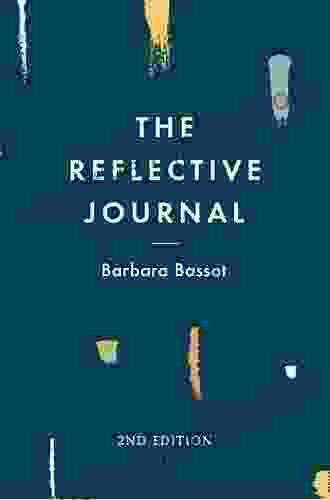Resisting the Brazilian Military Regime: A Courageous Struggle for Democracy

In the annals of history, the story of Brazil's military regime looms as a dark chapter of oppression and repression. For over two decades, from 1964 to 1985, the military junta ruled with an iron fist, suffocating civil liberties, silencing dissent, and committing countless human rights violations.
4.2 out of 5
| Language | : | English |
| File size | : | 16606 KB |
| Text-to-Speech | : | Enabled |
| Screen Reader | : | Supported |
| Enhanced typesetting | : | Enabled |
| Word Wise | : | Enabled |
| Print length | : | 324 pages |
Yet, despite the overwhelming power of the regime, there were those who dared to resist. Courageous individuals, groups, and organizations emerged from the shadows, risking their lives to fight for freedom, justice, and the return of democracy. Their stories are a testament to the indomitable spirit of the human soul.
The Roots of Resistance
The Brazilian military regime took root in the context of Cold War ideologies and fears. The military, backed by the United States, saw itself as the protector of the nation against the perceived threat of communism.
However, the regime's anti-communist rhetoric masked a deeper desire for control and power. It systematically dismantled democratic institutions, suspended elections, and imposed strict censorship. Dissent was met with swift and brutal repression.
As the regime tightened its grip, a growing movement of resistance began to take shape. Students, intellectuals, labor leaders, and ordinary citizens joined forces to challenge the dictatorship. Their tactics ranged from peaceful protests to armed guerrilla warfare.
Student Activism
Students played a pivotal role in the resistance movement. In the 1960s, university campuses became hotbeds of dissent and anti-regime organizing. Students formed clandestine groups, distributed leaflets, and staged demonstrations against the government.
Their activism inspired protests across the country, drawing widespread support from the population. However, the regime responded with violence. Student leaders were arrested, tortured, and disappeared.
Despite the repression, student activism remained a potent force throughout the military regime. It galvanized public opinion and kept the spirit of resistance alive.
Intellectuals and Artists
Intellectuals and artists also played a crucial role in the resistance. Writers, poets, musicians, and filmmakers used their creative talents to expose the regime's abuses and inspire hope.
Their works, often infused with symbolism and allegory, provided a powerful platform for criticizing the dictatorship. They challenged official narratives, fostered critical thinking, and gave voice to the oppressed.
Many intellectuals and artists faced persecution for their outspokenness. Their writings were banned, their films censored, and they themselves were subjected to surveillance and intimidation.
Guerrilla Warfare
In the face of unrelenting oppression, some resistance groups resorted to armed guerrilla warfare. The most prominent of these was the National Liberation Alliance (ALN),led by Carlos Marighella.
The ALN and other guerrilla groups carried out bombings, assassinations, and kidnappings to destabilize the regime and force it to negotiate. While these tactics were controversial, they brought international attention to the plight of the Brazilian people and put pressure on the military to seek a political solution.
The Struggle for Human Rights
Alongside the political and armed resistance, a parallel movement focused on documenting and denouncing human rights abuses. Organizations like the Brazilian Bar Association and the Catholic Church played a crucial role in providing legal assistance, shelter, and international support to victims of the regime.
Their efforts helped to bring the regime's atrocities to the attention of the world and eventually led to the creation of the Truth and Reconciliation Commission, which investigated the crimes committed during the military dictatorship.
The Return of Democracy
The Brazilian people's unwavering resistance eventually forced the military to relinquish power in 1985. A new constitution was drafted, enshrining democratic principles and civil liberties.
The transition to democracy was not without its challenges. The military retained some influence, and the scars of the regime's abuses took years to heal. However, the return of democracy marked a triumph for the brave souls who had fought so tirelessly for freedom.
Legacy of Resistance
The resistance to the Brazilian military regime is a testament to the indomitable spirit of those who fought for justice, even in the face of overwhelming odds. Their courage and unwavering determination inspired generations of activists and human rights defenders around the world.
Today, Brazil's democracy faces new challenges, but the legacy of the resistance movement continues to guide and inspire. It reminds us that democracy is a fragile flame that must be constantly defended and cherished.
The story of the Brazilian people's resistance to the military regime is a stirring account of courage, resilience, and the triumph of democracy over dictatorship. It is a testament to the power of the human spirit to overcome oppression and fight for a just and equitable society.
As we continue to face challenges to democracy around the world, let us draw inspiration from the brave men and women who stood against the Brazilian military regime. Their legacy serves as a reminder that the fight for freedom and justice is an ongoing struggle, one that we must all embrace.

4.2 out of 5
| Language | : | English |
| File size | : | 16606 KB |
| Text-to-Speech | : | Enabled |
| Screen Reader | : | Supported |
| Enhanced typesetting | : | Enabled |
| Word Wise | : | Enabled |
| Print length | : | 324 pages |
Do you want to contribute by writing guest posts on this blog?
Please contact us and send us a resume of previous articles that you have written.
 Book
Book Novel
Novel Page
Page Chapter
Chapter Text
Text Story
Story Genre
Genre Reader
Reader Library
Library Paperback
Paperback E-book
E-book Magazine
Magazine Newspaper
Newspaper Paragraph
Paragraph Sentence
Sentence Bookmark
Bookmark Shelf
Shelf Glossary
Glossary Bibliography
Bibliography Foreword
Foreword Preface
Preface Synopsis
Synopsis Annotation
Annotation Footnote
Footnote Manuscript
Manuscript Scroll
Scroll Codex
Codex Tome
Tome Bestseller
Bestseller Classics
Classics Library card
Library card Narrative
Narrative Biography
Biography Autobiography
Autobiography Memoir
Memoir Reference
Reference Encyclopedia
Encyclopedia Melissa Gilbert
Melissa Gilbert Becca Puglisi
Becca Puglisi Asavari Singh
Asavari Singh Tom Cole
Tom Cole Barbara O Connor
Barbara O Connor Michael Riedel
Michael Riedel Arturo Bris
Arturo Bris Belinda Jones
Belinda Jones Atle Midttun
Atle Midttun Aurora Levins Morales
Aurora Levins Morales Iain Robertson
Iain Robertson Kevin Hancock
Kevin Hancock Barbara Laine
Barbara Laine Ashley Mallett
Ashley Mallett Bagele Chilisa
Bagele Chilisa Randall Balmer
Randall Balmer Janet Cameron Hoult
Janet Cameron Hoult Basil Johnston
Basil Johnston Ashley Evans
Ashley Evans Frederick Harry Pitts
Frederick Harry Pitts
Light bulbAdvertise smarter! Our strategic ad space ensures maximum exposure. Reserve your spot today!

 Heath PowellMagician's Guide to Writing Your Own Lines: The Ultimate Guide for Writing...
Heath PowellMagician's Guide to Writing Your Own Lines: The Ultimate Guide for Writing...
 Jorge Luis BorgesUnlock the Power of Choice: Onechoice – How Ten Seconds Can Transform Your...
Jorge Luis BorgesUnlock the Power of Choice: Onechoice – How Ten Seconds Can Transform Your...
 Italo CalvinoThe Essential Guide to Customs Culture: Unraveling the Intriguing Tapestry of...
Italo CalvinoThe Essential Guide to Customs Culture: Unraveling the Intriguing Tapestry of... Esteban CoxFollow ·12.4k
Esteban CoxFollow ·12.4k Jessie CoxFollow ·4.4k
Jessie CoxFollow ·4.4k Ernesto SabatoFollow ·14.6k
Ernesto SabatoFollow ·14.6k Vince HayesFollow ·17k
Vince HayesFollow ·17k Carlos FuentesFollow ·9.7k
Carlos FuentesFollow ·9.7k Reed MitchellFollow ·6.4k
Reed MitchellFollow ·6.4k Bo CoxFollow ·14.3k
Bo CoxFollow ·14.3k Kurt VonnegutFollow ·18.5k
Kurt VonnegutFollow ·18.5k

 Ian McEwan
Ian McEwanWhy Didn't Anyone Say Anything? Uncovering the Hidden...
By [Author's...

 William Wordsworth
William WordsworthArthurian Legendarians: Faithless One - Part One – A...
In the realm of legendary tales, the...

 Corey Hayes
Corey HayesSSAT ISEE Prep Test: Arithmetic Review Flash Cards Cram...
Are you preparing for the SSAT or ISEE exam?...

 Robert Louis Stevenson
Robert Louis StevensonUnveiling the Essential Guide to Compliance: BCBS 239...
In the ever-evolving...

 Javier Bell
Javier BellJust Peachy: A Tale of Sweetness and Sassiness
Immerse yourself in a...

 Brent Foster
Brent FosterStep-by-Step Instruction Manual to Building a Real Estate...
Are you eager to embark on the...
4.2 out of 5
| Language | : | English |
| File size | : | 16606 KB |
| Text-to-Speech | : | Enabled |
| Screen Reader | : | Supported |
| Enhanced typesetting | : | Enabled |
| Word Wise | : | Enabled |
| Print length | : | 324 pages |






